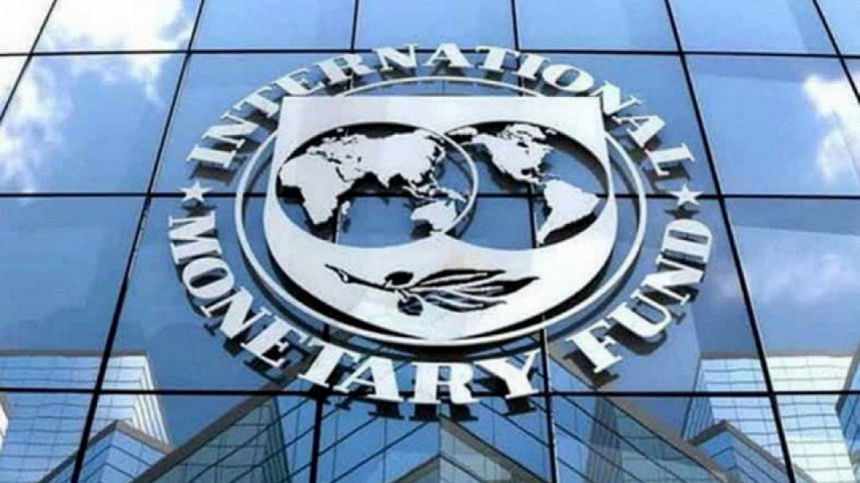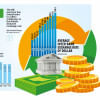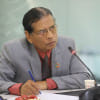IMF to suggest new exchange rate system

The IMF staff mission is willing to set a lower target for foreign currency reserves for this December and June next year provided the Bangladesh Bank adopts the crawling peg method to manage the exchange rate.
The crawling peg is a system of exchange rate adjustments in which a currency with a fixed exchange rate is allowed to fluctuate within a band of rates, and in so doing, the method fully uses the key attributes of the fixed exchange regimes, as well as the flexibility of the floating exchange rate regime.
The system is shaped to peg at a certain value, but at the same time is designed to "glide" to respond to external market uncertainties within a band of rates.
The central bank conveyed to the visiting IMF staff mission that it is open to adopting the crawling peg but sought technical assistance on how to implement it, The Daily Star has learnt from BB and finance ministry officials informed about the discussions held yesterday.
As per the terms and conditions agreed with the Washington-based multilateral lender for the $4.7 billion loan programme, the central bank had committed to introducing a unified, market-based exchange rate from June.
On paper, BB introduced the market-based exchange rate in July. In practice, the exchange rate is fixed by the Bangladesh Foreign Exchange Dealer's Association and the Association of Bankers, Bangladesh on unofficial instructions from BB.
The visiting IMF mission, led by Rahul Anand, is not happy with the existing exchange rate mechanism as it is failing to bolster the dollar stockpile.
The IMF staff mission is on board with the government's request for a lower reserve target for December and June next year that accommodates the present context of the Bangladesh economy.
The net foreign reserves target was set based on import bills for a certain number of months. Since the government has dramatically brought down imports from the time when the targets were set, a lower target is not inappropriate, according to officials.
At the end of December, Bangladesh is supposed to have at least $26.8 billion in net international reserves.
At present, Bangladesh's net international reserves are less than $18 billion, according to the calculations of Zahid Hussain, a former lead economist of the World Bank's Dhaka office.
Given the forthcoming polls, it is not possible for the central bank to take any drastic measures to preserve reserves, so the the December target will be unmet, as with the previous quarters' targets, officials said.
Subsequently, the IMF mission has decided to request for a concession to this mandatory condition from the board.
The IMF staff mission are also not happy with the interest rate corridor system introduced in June as it is not truly market-based.
As per the BB's new interest rate formula, banks can impose a 3 percent margin on the "six-month moving average rate of treasury bills", abbreviated as SMART. In other words, there is still a ceiling on the interest rate.
Subsequently, the IMF mission called for a true market-based interest rate system.
The IMF mission said they are on board with the decisions taken by the government but they are dissatisfied with the slow implementation process, especially in financial and revenue sectors.
For instance, the IMF team is satisfied with the amendments to the Bank Company Act but are not happy with the high defaulted loans in the banking sector, particularly at state banks, and the corporate governance.
In the revenue sector, the IMF wanted the government to conduct a study about the scenario of tax exemptions in different sectors.
There has been very little headway in conducting the study and the IMF will most likely set a timeframe for this, said a finance ministry official.
The mission discussed the topics of dynamic energy pricing formula and slashing subsidies for the energy sector.
Besides BB and finance ministry, the staff mission held meetings with the World Bank and the Asian Development Bank to get their assessment of the Bangladesh economy.
The IMF mission is expected to finalise the next plan of action for the government by today.


 For all latest news, follow The Daily Star's Google News channel.
For all latest news, follow The Daily Star's Google News channel. 







Comments